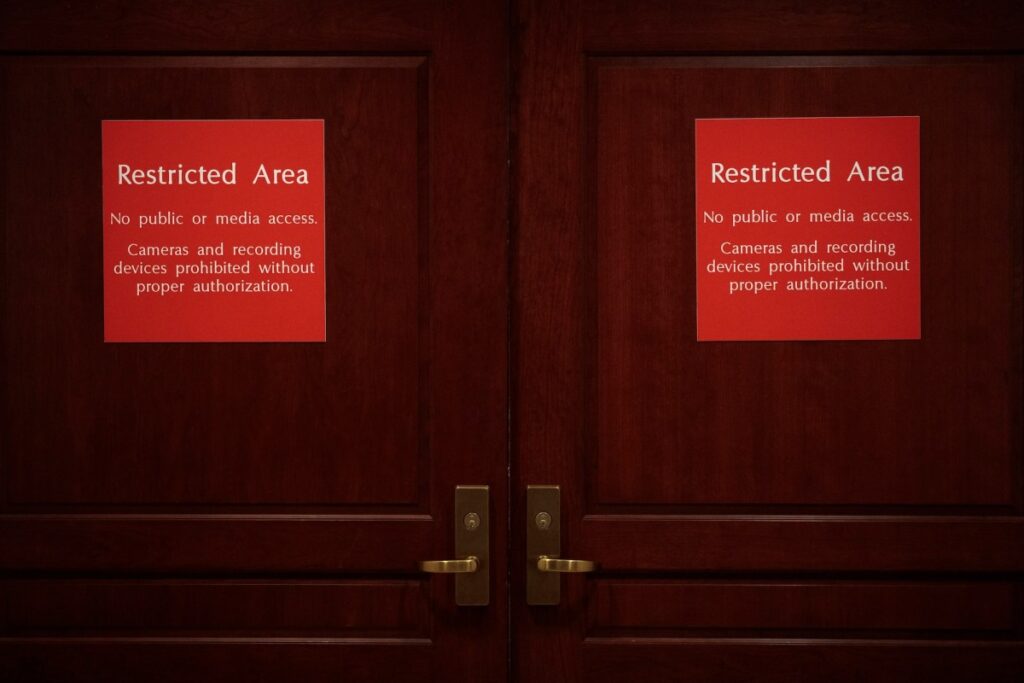
Image credits: Drew Angerer/Getty Images
Lawmakers passed a bill early Saturday that would reauthorize and expand a controversial U.S. surveillance law shortly after its powers expired at midnight, rejecting objections from privacy advocates and lawmakers.
The bill, which passed on a 60-34 vote, reauthorizes the Foreign Intelligence Surveillance Act (FISA), known as Section 702, which allows the government to access the records of high-tech and telephone providers. It allows the collection of communications of foreigners. Critics, including some members of Congress who voted against reauthorization, argue that while FISA spies on foreign targets, it also scrutinizes Americans' communications.
White House officials and spy leaders have discouraged efforts to reauthorize FISA, arguing that the law is meant to prevent terrorism and cyberattacks and that any loss of authority would harm the U.S. government's ability to gather intelligence. rallied in support. The Biden administration claims that much of the classified information contained in the president's daily briefings comes from the Section 702 program.
Privacy and rights groups rejected the reauthorization of FISA, which would not require the FBI or NSA to obtain a warrant before searching Section 702 databases for Americans' communications. Accusations that the FBI and NSA abused their powers to conduct warrantless searches of Americans' communications became a key issue for some Republican lawmakers who had initially called for stronger privacy protections.
The bipartisan effort aimed to require the government to obtain a warrant before searching databases for Americans' communications. However, these were rejected before the final vote on the Senate floor.
Following its passage early today, Sen. Mark Warner, chairman of the Senate Intelligence Committee, said FISA is “essential” to the U.S. intelligence community.
The bill now heads to the president's desk and is almost certain to become law.
FISA was enacted into law in 1978, before the advent of the modern Internet. In 2013, after a massive leak of classified documents exposed the U.S. government's global eavesdropping program under FISA and revealed the unwilling participation of several major U.S. tech companies and telephone companies. public attention began to increase.
The Senate was largely expected to pass the oversight bill, but the new bill comes after the House passed a bill last week that would expand FISA coverage to small businesses and carriers, which had previously been excluded. faced opposition. Surveillance law.
Telecommunications providers have largely opposed the House's expansion of the definition of “electronic communications service provider,” which would unintentionally include companies other than big tech companies and telecom providers that are already required to hand over user data. He insisted that it would happen.
An amendment introduced by Sen. Ron Wyden to remove the expanded measures from the bill did not pass.
Wyden, a Democratic privacy hawk and member of the Senate Intelligence Committee, accused senators of waiting “until the 11th hour to push through warrantless surveillance updates in the middle of the night.”
“Time and time again, anti-reform advocates have pledged that legal reforms would curb abuses, but each time the public faces new demands from officials who face little meaningful oversight,” Wyden said in a statement. “We will learn about serious abuse,” he said.
In the end, the bill was passed just after midnight.
Despite the last-minute rush to pass the bill, important provisions in FISA prevent government programs under Section 702 from being abruptly stopped if legal authority lapses. FISA requires the government to seek annual certification from his secretive FISA court, which oversees and approves government surveillance programs. The FISA court last certified the government's Section 702 surveillance program in early April, allowing the government to exercise its expired powers until at least April 2025.
FISA currently expires at the end of 2026, and a similar legislative showdown is expected midway through the next U.S. administration.


